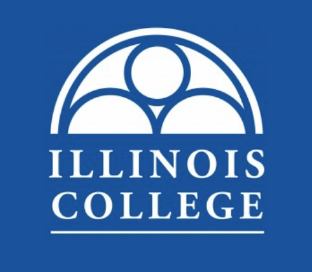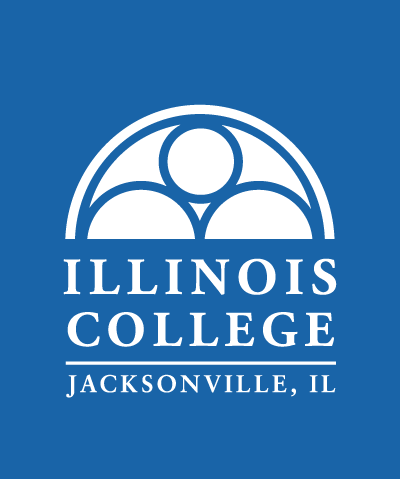Transfer Credit and BLUEprint Exemptions
In most cases, Illinois College accepts transfer credits from regionally accredited institutions of higher education for coursework equivalent to coursework offered at Illinois College. In general, undergraduate academic coursework with a grade of ‘C-‘ or better is transferable to Illinois College while vocational and graduate course work is not because Illinois College does not offer work in these areas.
No credit is given for any coursework for which the student received a grade below a ‘C-’ or a credit/no credit grade. An exception will be made and CR grades will be accepted for courses taken in spring 2020 due to the COVID-19 pandemic.
Official transcripts from an accredited college are required before transfer credit can be accepted and recorded on the student record. Copies issued to the student, even sealed copies, are not accepted as official.
Transfer credits are evaluated by the Office of the Registrar in consultation with the relevant academic departments. Application of the coursework within each major is determined by that academic program. Acceptance of transfer courses for credit does not automatically guarantee that those courses will substitute for particular Illinois College courses in meeting general education requirements or within majors or minors. Transfer courses normally receive the semester hour equivalent of the credit value of the institution where the courses were taken, whether higher or lower than the equivalent Illinois College course. The grades earned on transfer work do not count toward the grade point average at Illinois College.
No more than 88 hours of transfer work from accredited two-year colleges or four-year institutions may be counted toward an Illinois College degree. Students entering with an Associate of Applied Science degree from institutions with an approved articulation agreement on file with Illinois College will transfer a minimum of 60 semester credit hours. Any credit earned beyond the 60 semester credit hours will be reviewed on a case-by-case basis for transfer. Students must earn at least 32 semester hours of academic credit at Illinois College, with 24 of the last 32 completed with Illinois College.
Policies for Transfer Students Seeking to Satisfy BLUEprint Requirements
- Students may transfer approved courses into Illinois College to substitute for BLUEprint (General Education) courses. In most cases, departments will collaborate with the Office of the Registrar to approve courses from other institutions of higher learning to meet the standards of various BLUEprint requirements. In cases for which there is no appropriate department or program to approve such a course, students may petition for approval by submitting the Educational Policies Appeal (EPA) form.
- Students who transfer to Illinois College with less than 15 semester credit hours must take a First-Year Seminar (FYS).
- Students who have earned an associate’s degree prior to initial matriculation at Illinois College complete the BLUEprint with the following modifications:
- Exemption of the First-Year Seminar
- Substitution of a non-studio arts class for the Creative Expressions Studio requirement
- Substitution of a second Global Awareness course or a second U.S. Diversity BLUEprint course for the Modern Language requirement
For transfer students who have not earned an associate’s degree prior to the initial enrollment at Illinois College, similar substitutions may be made on a case by case basis.
Co-Curricular Activities Which Meet General Education Requirements:
Students may petition the Curriculum and Educational Policies Committee for approval of co-curricular activities at another college or university as a substitute for such co-curricular activities at Illinois College that meet general education requirements. As with all transfer credit, students must demonstrate with evidence that the activity for which they seek credit meets the requirement.
The Curriculum and Educational Policies Committee continues to serve as the decision-making body when students seek exceptions to academic policies and requirements, including this legislation.
General Education and Transfer Policies for Online Degree Program:
Illinois College welcomes students into its fully online programs, and the faculty have approved several substitutions to the general education requirements to acknowledge the different circumstances of this mode of study.
Students in the fully online programs who possess an associate’s degree or at least one year of work experience relevant to their area of academic interest are exempt from the convocation requirement. Students with transfer credits but no degree who possess at least one year of work experience relevant to their area of academic interest are exempt from the first-year seminar requirement, can substitute a Science in Society non-lab course for the lab requirement, and can substitute an additional Global Awareness course for the language requirement.


